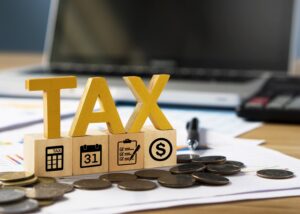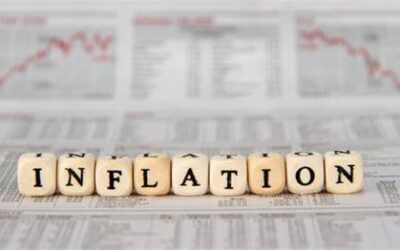
As the financial reporting landscape continues to evolve, the International Accounting Standards Board (IASB) and the International Sustainability Standards Board (ISSB) have introduced a range of new and revised pronouncements that impact financial and sustainability reporting for periods ending on 30 June 2025. This article highlights the key changes, effective dates, and practical implications for preparers of financial statements under International Financial Reporting Standards (IFRS).
Quick Overview: Why These Updates Matter
The latest pronouncements are crucial for entities preparing their year-end or quarterly financial statements as they may affect accounting policies, disclosures, and even the presentation of financial statements. Entities are reminded of their obligations under IAS 8, which requires disclosure of new IFRSs issued but not yet effective if they are expected to have an impact.
Summary of Key Pronouncements Effective on 30 June 2025
The following standards and amendments are now mandatory for the first time on 30 June 2025 or available for early application:
Pronouncement | Effective Date | Mandatory for Reporting Periods Ending 30 June 2025 |
IFRS S1: General Requirements for Sustainability-Related Financial Disclosures | 1 Jan 2024 | Yes |
IFRS S2: Climate-Related Disclosures | 1 Jan 2024 | Yes |
Amendments to IAS 1: Classification of Liabilities as Current or Non-Current | 1 Jan 2024 | Yes |
Amendments to IFRS 16: Lease Liability in a Sale and Leaseback | 1 Jan 2024 | Yes |
Amendments to IAS 1: Non-Current Liabilities with Covenants | 1 Jan2024 | Yes |
Amendments to IAS 7 and IFRS 7: Supplier Finance Arrangements | 1 Jan 2024 | Yes |
Amendments to IAS 21: Lack of Exchangeability | 1 Jan 2025 | No, but earlier application is permitted. |
Amendments to SASB Standards to improve the international applicability | 1 Jan 2025 | No, but earlier application is permitted. |
Additional pronouncements like IFRS 18 (Presentation and Disclosure) and IFRS 19 (Subsidiaries without Public Accountability: Disclosures) are issued but will only become mandatory from 2027. Early adoption is permitted.
Spotlight on Major Standards and Amendments
IFRS S1 & IFRS S2: Sustainability and Climate-Related Disclosures
Effective from 1 January 2024, these new standards require entities to provide decision-useful information on sustainability risks and climate-related issues. While not endorsed for use in the EU, they are mandatory for many other jurisdictions.
IFRS 18: Presentation and Disclosure in Financial Statements (Effective 1 January 2027)
Though not yet mandatory, IFRS 18 will fundamentally change the way financial performance is communicated:
- Income and expenses will be categorized into operating, investing, and financing activities.
- New subtotals such as Operating Profit will be required.
- Enhanced disclosure requirements for management-defined performance measures (MPMs).
Preparers are advised to begin impact assessments early, as comparative information for 2026 will be necessary.
Amendments to IAS 1: Classification of Liabilities
Clarifies how to classify liabilities as current or non-current, especially when conditions or covenants could impact the settlement of debts.
Amendments to IFRS 16: Leasebacks
Clarifies measurement principles for sale-and-leaseback transactions, reducing diversity in practice.
Lack of Exchangeability (Amendments to IAS 21)
Introduces guidance for cases where a currency cannot be exchanged, including how to estimate exchange rates and what disclosures are required. This amendment aims to increase transparency for investors in economies subject to currency controls.
Future Developments to Watch (Effective 2026–2027)
Several pronouncements are optional as of 31 March 2025 but will become mandatory in future periods:
- IFRS 18 and IFRS 19 (Effective 1 January 2027)
- Classification and Measurement of Financial Instruments (IFRS 9/IFRS 7 Amendments) (Effective 1 January 2026)
- Annual Improvements to IFRS – Volume 11 (Effective 1 January 2026)
- Third Edition of IFRS for SMEs (Effective 1 January 2027)
Financial Statement Implications
Entities applying new pronouncements must carefully consider:
- Updates to accounting policies and related disclosures.
- Transitional provisions to ensure correct retrospective or prospective application.
- Potential need for a third statement of financial position in cases of material retrospective change.
- Adjustments to earnings per share (EPS) and comparative figures.
For interim financial reporting, fewer disclosures may be required, but material changes to accounting policies must still be communicated under IAS 34.
Comparison to US GAAP
While many of the IFRS changes align with evolving trends in US GAAP, key differences remain:
- Lack of Exchangeability: Under US GAAP there is no concept of estimating exchange rates, however, the lack of exchangeability must be disclosed.
- Classification of Financial Instruments: US GAAP differs in the derecognition of liabilities settled through electronic payments.
- Sustainability Reporting: The IFRS S1/S2 requirements have no direct US GAAP equivalents but mirror increasing SEC focus on ESG disclosures.
- IFRS 18: US GAAP generally has no requirements to classify income and expenses by specific category, or present subtotals for profit or loss. Starting 2027, the FASB will require certain expense categories in the notes, which will be similar in spirit to IFRS 18, but will only apply to public business entities.
- IFRS 19 vs. US Private Company Alternatives: Both aim to reduce reporting burden but differ in scope and specifics.
Conclusion
The updates and new standards to IFRS above mark a significant step forward in sustainability reporting, liability classification, and financial instrument disclosure. While some standards apply immediately, others require preparers to plan ahead for major changes coming in 2026 and 2027. Timely assessment and preparation will be critical to ensure compliance and transparent reporting.
References
Boissou, V., & Kumah, P. (2025, June 05). Q2 2025 new IFRS® Accounting Standards and amendments: Are you ready? Retrieved from KPMG: https://kpmg.com/us/en/articles/2025/q2-2025-new-ifrs-accounting-standards-amendments-are-you-ready.html
Deloitte IAS Plus. (2025, March 20). New and revised pronouncements as at 30 June 2025. Retrieved from Deloitte IAS Plus: https://www.iasplus.com/en/news/othernews/new-and-revised/2025/june
Photo:
https://th.bing.com/th/id/R.024584a9d9d2d245bfa6e0074a5891c6?rik=WeuVuCfGNHhJJg&riu=http%3a%2f%2fstatic1.squarespace.com%2fstatic%2f60390643b2483e60b94160d0%2f6151d2ad8e6b8d0a91cdb0ad%2f64caa443c87fcd26d8afe052%2f1691002408111%2ftax-wooden-letter-and-tax-icon-on-wooden-block-pay-2022-11-25-16-55-03-utc.jpg%3fformat%3d1500w&ehk=i4%2fiwP6GQUSymhDKy4OxFOZX%2ffv8ZEEdW60pskBBgPk%3d&risl=&pid=ImgRaw&r=0



